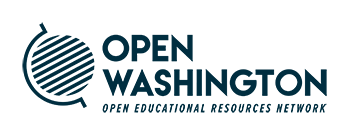Z-Degree at Tidewater CC – Open Policy Video
Institutional Policy in Support of Open Initiatives
“When faculty selected the OER, the standard is the OER need to align with the outcomes of the course so there is a match between the resources used in each of the outcomes. That design, we think, is paying dividends in terms of what we are seeing with student performance.”
Participants:
- Daniel DeMarte, prior Vice President for Academic Affairs & Chief Academic Officer at Tidewater Community College.
- Mark Jenkins, Director of Educational Technology and Open Education at Washington State Board for Community and Technical Colleges.
Summary:
In this segment, DeMarte gives a quick background and description of the Z-degree program and jumps right to Tidewater Community College (TCC)’s policy framework on the use of OER. He illustrates the detailed process of establishing the policy from the initial conception to the implementation. He first introduces the purpose statements of the Z-degree program which include 1) to improve student success through increased access and affordability, and 2) to improve teaching efficiency and effectiveness through the course materials directly aligned with course learning outcomes. He goes on to explain the Z-degree procedures which start with an OER Pathways course and finalize with Z course authorization. In explaining the role policy played in their Z-degree course implementation, DeMarte emphasizes the importance of having faculty involved in writing the policy. Then DeMarte and Jenkins move to discuss the impact of the Z-Degree and the associated policy framework at Tidewater. As an example, he reports that they had 2,500 students who completed a Z-course and collectively they saved roughly $250,000 in textbook cost. They conclude the conversation by describing how this Z-degree program is being replicated across the Virginia community college system.
Guiding inquires:
- What role does policy play in implementing an OER project at the institutional level? –OR— Why is policy framework specific to OER necessary to properly implement an OER project at the institutional level? How does TCC’s story reflect that?
- Who are the key institutional stakeholders to engage in policy development discussions?
- What are the essential elements of a successful institutional policy such as TCC’s OER Policy?
- What can be done to encourage institutional engagement at the policy level as well as at the level of procedures?
Suggested activities:
- TCC’s Z-degree program was guided by the policy framework that informs not only the policy requirement but also the step-by-step implementation process. This framework also provides detailed information on the purpose, responsibility, definition, references, review process, and even the sample report template. Imagine yourself as a director of Open Education at your institution and draft an OER initiative. Then create a policy document necessary to guide that initiative.
- Notice that the OER policy at TCC was conceived as the faculty members wanted to have assurances from the college as they jump into something new and innovative. Share your thought on these issues. Consider benefits and challenges.
